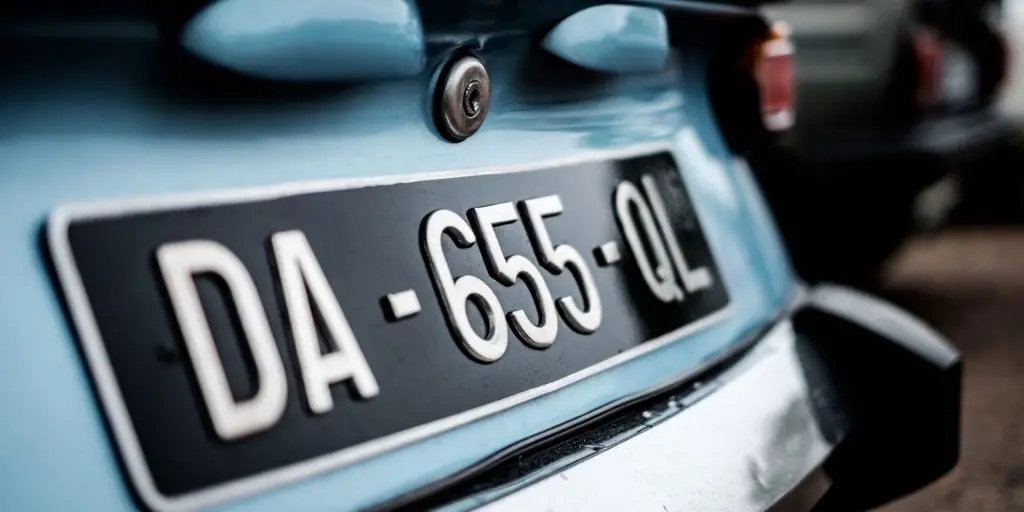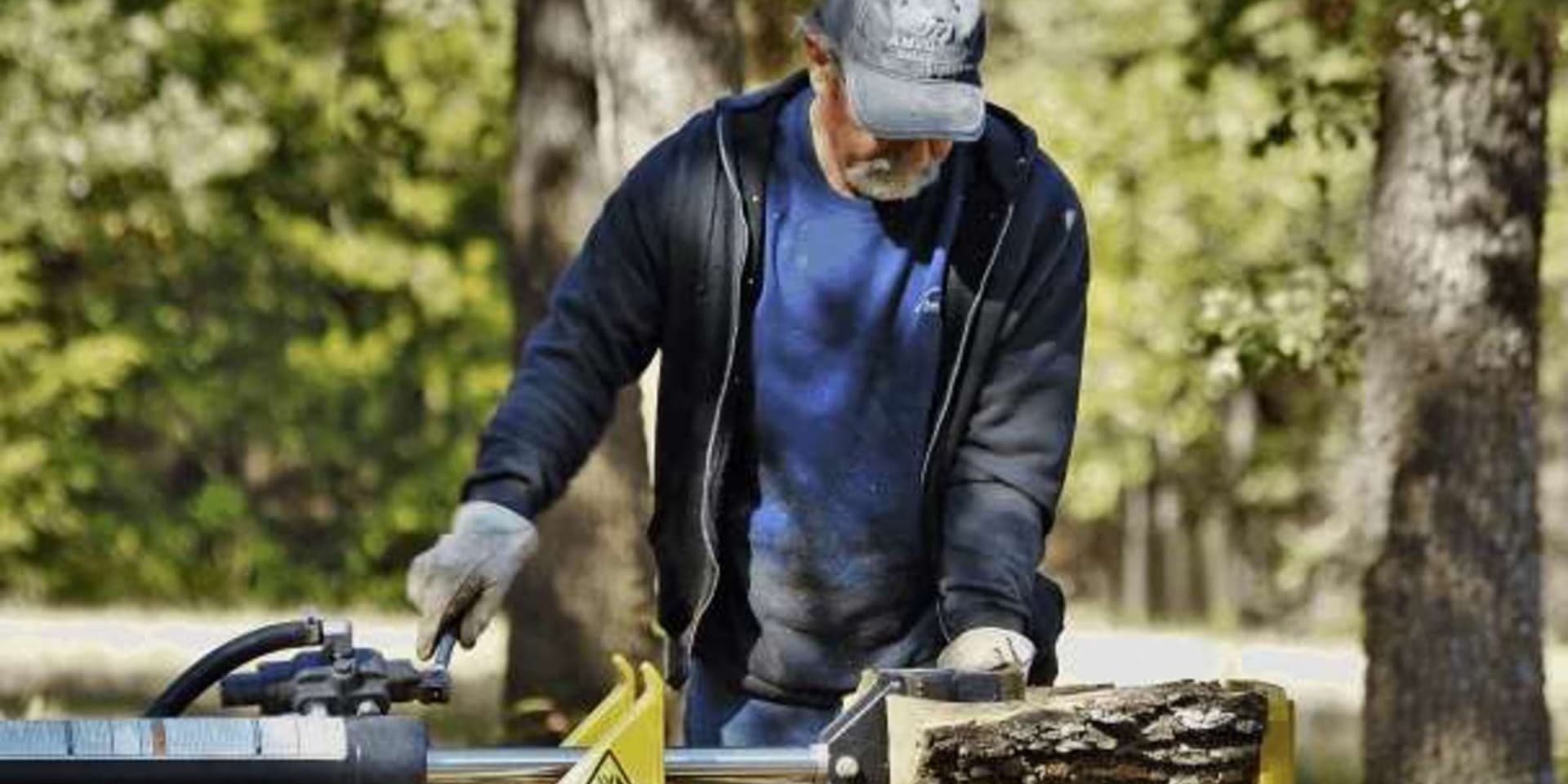Do You Need a License Plate for a Log Splitter?
Have you ever wondered if you need a license plate if you own a log splitter? Or maybe you never owned one and are thinking about getting one. Aside from wondering about how you’re going to find the perfect log splitter for your needs, one question may also come into your mind, “Are you really restricted to drive the log splitter without a license plate and insurance in your state?” Whether it is legal or not, there is a lot of confusion over this. In this blog, we’re gonna find out the proper answer to that question!

Table of Contents
Brief History of Log Splitters
Before we dive deeper into the question of “Do you need a license plate for a log splitter?”, we shall first understand log splitters more and their history. For hundreds of years, splitting wood has been a tradition and a necessity for all of mankind.
Whether it’s for starting a fire or building a house, humans have long been splitting woods for their day-to-day use. Because of that, mankind was able to create and invent several types of machinery and improvements to help them split wood easier and faster.
It was not until 1967 when a patent was formally filed for a log splitter. Clifford H. Snyder and his attorney presented a wood-cutting machine that uses a general vertical blade and runs in a hydraulic pump. Since then, people were able to see the convenience and efficiency brought upon by the log splitter.
It is also safe to say that since the day the log splitter was patented in 1967, possessing it has become exclusive and in honor of the inventor. However, do we really need to register our log splitters to use them legally? We’ll find out in a while.
Are Log Splitters legal to use on roads?
Technically, the answer to that question is yes. You can freely tow your log splitters on the road as long as it is considered “towable” and you don’t exceed the imposed speed limits on the road. Moreover, always consider your safety and the ones around you when deciding about the speed you’re going to tow your log splitter. Keep in mind that commercially used log splitters are not recommended to be pulled at speeds above 35 mph in general.
So, let’s say you’re planning to transport your log splitter. What are the things that you need to do to ensure your safety?
How do you Transport a Log Splitter?
Have you ever wondered if there is any method to transporting a log splitter better than the others? Are some methods more effective than others? Remember to always prioritize safety over anything else. Here are the three (3) simple steps in transporting a log splitter:
- Position the Log Splitter
Make sure that the log splitter is in the proper position for movement before you go on. Ensure that the engine and hydraulic valve are in the off position. Attach the tow behind your log splitter to your rig just like any other trailer. Moreover, never attempt to move the splitter with wood loaded in it.
- Attach the Splitter
Firstly, the model you have purchased comes with a specific set of instructions, so make sure to follow them carefully. However, just to give general tips for safely attaching the rig of your splitter to the tractor, here are some things you should consider.
Use a floor jack to prop up the hitch end of the splitter. Secure the log splitter tightly and make sure to position all the components properly. After that, drive your tractor up to the log splitter on the correct side.
- Move the Splitter
After making sure that the log splitter is positioned and attached properly, the next thing to do would be to properly move it using your tractor or rig. Again, your purchased log splitter comes with a specific set of instructions. Make sure to follow them religiously and carefully to avoid accidents. Also, having sufficient knowledge about the basics also comes a long way!
Now that we’re aware of the brief history of log splitters and the safety precautions you need to follow if you’re planning to transport your log splitter, are you really all set to move your log splitter? Not yet! We still have to answer the main question of this article. So let’s find out!
So, Do you need a License Plate for your Log Splitter?
Finally, we have come to answer the major question in this article. Do you really need a license plate for your log splitter? Keep in mind that each state has its own set of laws especially on automobile and machinery registration. So, the safe answer to that question is: YES. Yes, you need to consult with the traffic bureau of your respective states so that you’ll be able to know if you need a license plate for your log splitters.
However, here’s the thing. Not all states in the US require you to install a license plate on your log splitter. For example, in New York, if a piece of machinery cannot operate or run on the streets under its own power, they never need to be registered. Moreover, the thing they have to registers is the trailer that’s supposed to haul the machinery on the streets.
In that case, suppose that you wish to tow your log splitter from your house on the way to your brother’s, the trailer that you will be using, which carries the log splitter, needs to have a license plate on it. But for the log splitter itself, you don’t really have to. Therefore, in New York, log splitters don’t need license plates.
Do I Need to Register My Log Splitter?
To be fair, registering a log splitter and having a license plate for it are two totally different things. The safe answer to this question is: YES. Why? Because laws differ depending on the state you’re living in. So it is your duty as the rightful owner of the machinery to be aware of the different laws imposed on your state. Another factor to consider is the type, model, and capacity of your log splitter. Those things and the safety of everyone on the road are the top priority at all costs.
However, if we are talking about the general sense of things, all things considered, you don’t really have to register your log splitter if you deem them safe to transport and haul behind your own trailer.
Conclusion
Being aware of your state’s laws can save you money and time in the future. It can also help you avoid common problems caused by people who don’t know what the rules are in their particular state. Moreover, it is an unspoken rule that you should take full responsibility for everything that you consider your own.
Keep in mind that owning a log splitter requires a lot of responsibility and knowledge about the owner. This piece of machinery you bought is supposed to offer you convenience and efficiency, not headaches and problems.




